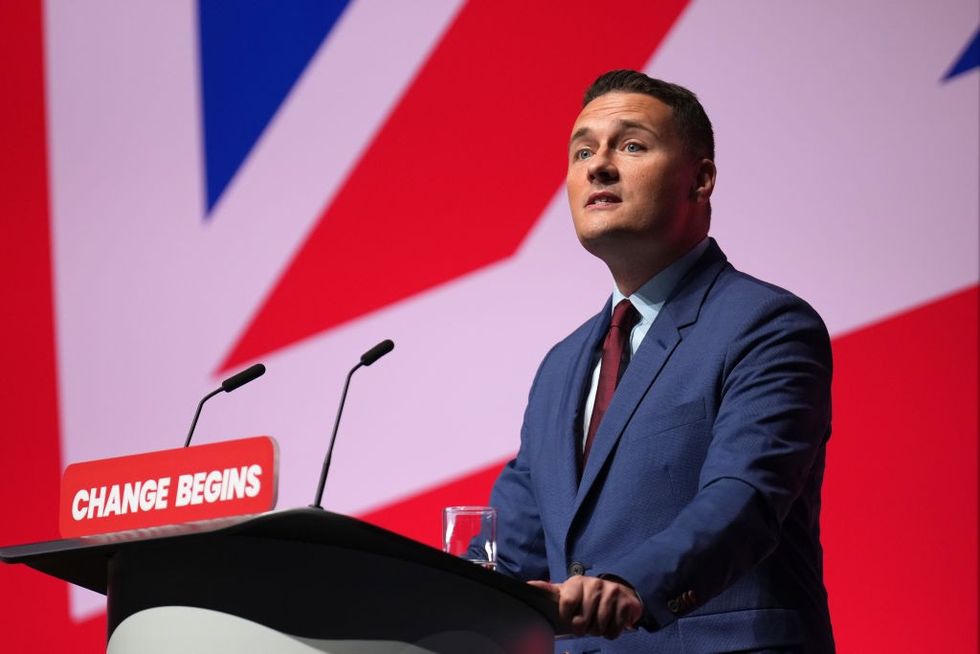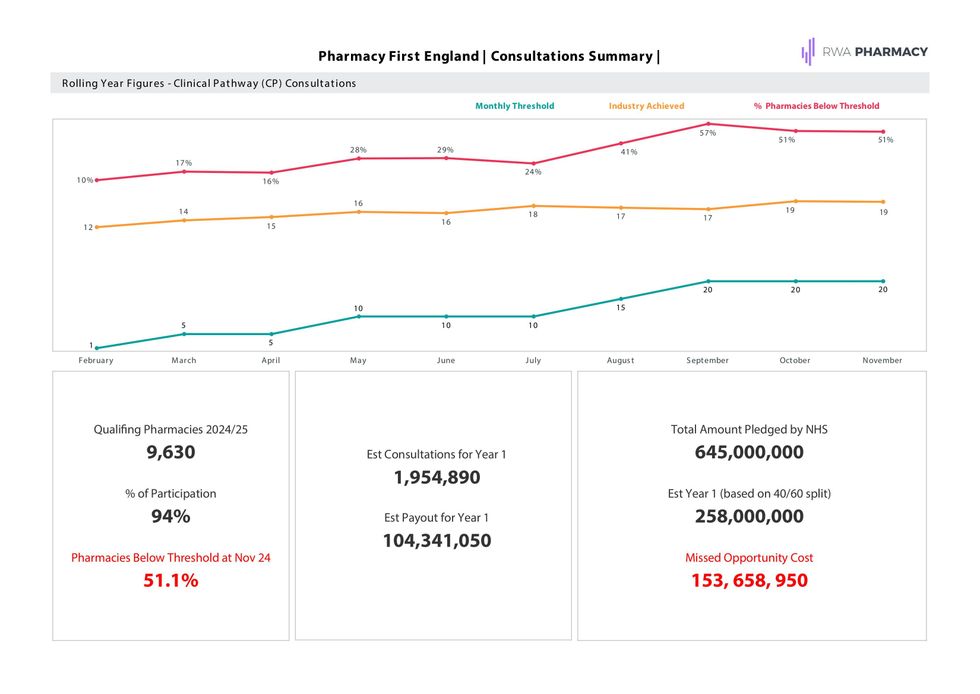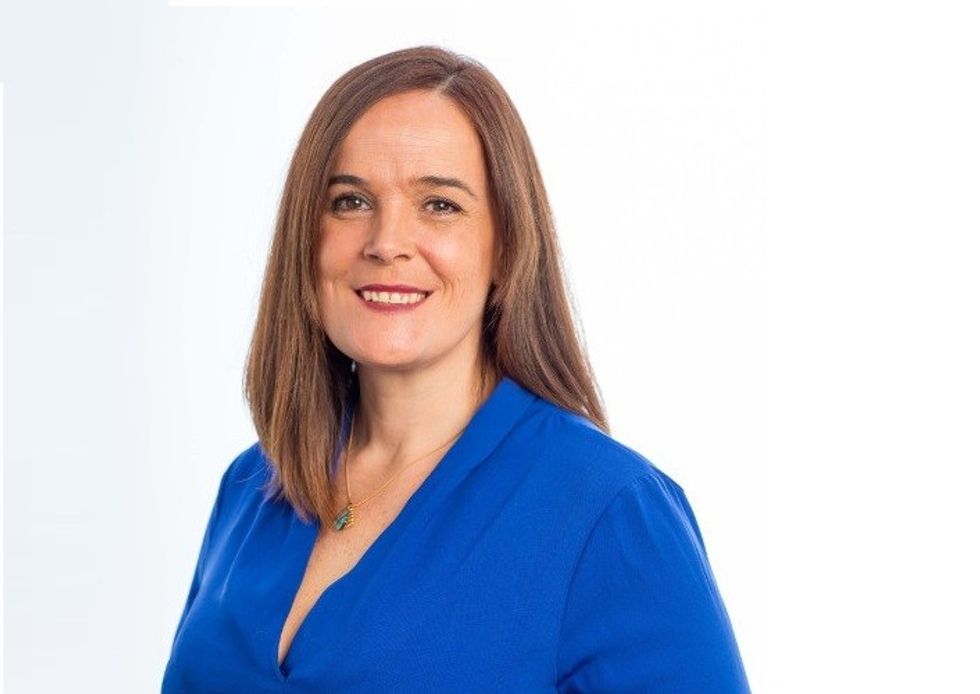'This year will be another challenging 12 months for community pharmacy'
By Jeremy Meader
Chief Wholesale Officer at Bestway Healthcare
Pharmacy contractors, particularly those in England and Northern Ireland, faced an extremely challenging 2024.
The general election delayed the new Community Pharmacy Contractual Framework (CPCF) negotiations leaving pharmacies in England having to endure further hardship, as a frankly unfit 2019 contract, was effectively extended.
We have witnessed pharmacy closures on a weekly basis and it is clear that an increasing number of English contractors are struggling to pay their wholesaler bills on time. It is unacceptable that the Government have allowed this to happen. In Scotland and Wales settlements have factored in inflation, which is essential for the future.
Whilst we should be cautiously optimistic about the NHS plan under the new Labour government, I’m acutely aware that the sector urgently needs an injection of cash to help offset the last five years of chronic underfunding. The next English CPCF must be inflation linked, the sector cannot absorb ever-increasing costs. Pharmacy teams already work incredibly hard to deliver care to their patients and communities.
The January 2025 Category M price list, based on analysis by Community Pharmacy England (CPE) estimates there to be an overall reduction of approximately £34m per quarter. This reduction that reflects a combination of “tariff adjustments” will be very hard for some pharmacies to absorb, leading almost inevitably to more closures - hardly the start to the New Year we had hoped for.
On a more positive note, it is good to hear that pharmacy minister Stephen Kinnock has stated that “the Government is working to introduce legislation to enable hub-and-spoke dispensing between different legal entities in 2025”. This is welcome news after the government indefinitely delayed changes to legal status to hub-and-spoke last autumn.
Health secretary Wes Streeting’s three main priorities for the NHS: analogue to digital, hospital to community and treatment to prevention, all sound, at face value, positive for community pharmacy.
Alongside these priorities, however, stands a real opportunity for Pharmacy First to be rapidly extended to offer a much broader range of treatments to patients than the existing framework. We have seen this delivered successfully in Scotland and it should be replicated. More investment is urgently needed in England to raise awareness of this service and to prevent unnecessary GP appointments.
The three key priorities for the NHS are worth looking at more in depth.
Analogue to digital will enable a more modern NHS system to be created and one which can only benefit the pharmacy sector. The move from paper to digital offers much potential for simplifying ways of working, but also has cost implications for community pharmacy that must be covered. This transformation will also make for a better experience for the patient which is important.
Prime minister Sir Keir Starmer’s government have voiced their hopes for a shift from hospital to community with the hopes of using more community-based health centres. Correctly executed this could be empowering for pharmacies, although to facilitate this the government must offer greater service provision to pharmacy, which has to be well planned, including covering the costs of staff training.
In order to do this, there will need to be extensive coordination with social care. The government’s announcement that Baroness Louise Casey will chair an independent commission into adult social care is welcome, however the final report is not due until 2028, which doesn’t really reflect a sense of urgency!
Switching focus from treatment for prevention is a noble ambition, the devil will be in the detail as this is indeed a long-term aspiration. Pharmacy can have a real role to play in this. Weight loss is a good example where pharmacies can certainly help in the battle against obesity with several supportive ways to help patients lose weight and then maintain a healthy lifestyle.
If the local pharmacy can become a one-stop shop for both diagnosis and treatment it will allow for the rest of the NHS to focus on those who have illnesses which do not have a relatively quick fix.
Pharmacies across the UK can play an incredibly significant part in reforming the NHS. In England this capability must be fully recognised. The sector has been starved of investment, this must be addressed urgently and not by a sticking plaster, but with a long-term plan that enables owners to have confidence to invest in their businesses for the benefit of the local communities that they serve.
This year will be another challenging 12 months for community pharmacy. Hopefully it will prove to be a pivotal year, that will finally see more sustainable funding that will enable the sector to have more confidence and optimism about the future and the role it can play as an essential and valued part of the NHS.
Jeremy Meader is the Chief Wholesale Officer of Bestway Healthcare, overseeing brands such as Lexon, Wardles, and Bestway Medhub. Jeremy has over 25 years of experience in the UK pharmaceutical sector, and has worked in executive roles across the industry.










 Harry McQuillan
Harry McQuillan





 Wes Streeting outlines ambitious NHS reform plansPic credit: Getty images
Wes Streeting outlines ambitious NHS reform plansPic credit: Getty images Pharmacies played a critical role during the pandemicPic credit: Hollie Adams/Getty Images
Pharmacies played a critical role during the pandemicPic credit: Hollie Adams/Getty Images




 Shivam Modi
Shivam Modi